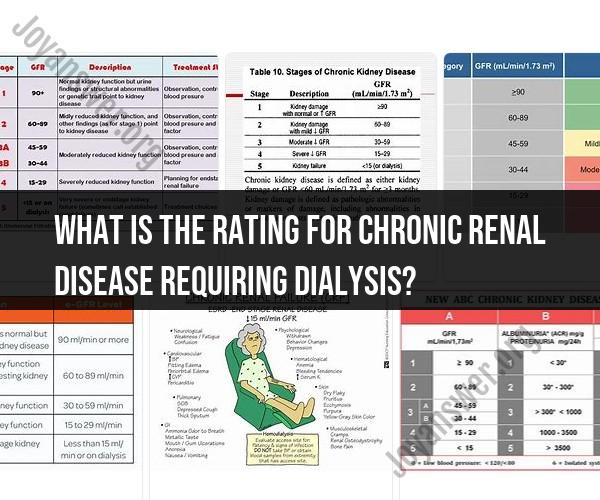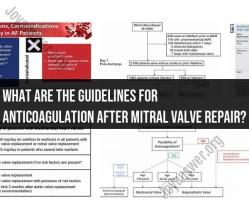What is the rating for chronic renal disease requiring dialysis?
Rating chronic renal disease requiring dialysis involves assessing the severity of the condition, typically using a classification system. One commonly used classification system is the Glomerular Filtration Rate (GFR) classification. GFR is a measure of kidney function, and its value helps determine the stage of chronic kidney disease (CKD) and the need for dialysis. It's important to note that medical professionals use this classification to guide treatment decisions, but it may not directly translate to a single rating.
The GFR classification system includes five stages:
Stage 1: GFR > 90 mL/min (normal or high kidney function)
Stage 2: GFR 60-89 mL/min (mildly decreased kidney function)
Stage 3: GFR 30-59 mL/min (moderately decreased kidney function)
Stage 4: GFR 15-29 mL/min (severely decreased kidney function)
Stage 5: GFR < 15 mL/min or on dialysis (end-stage kidney disease)
Each stage corresponds to different levels of kidney function and may require different interventions, including dialysis or kidney transplantation.
However, if you're referring to "rating" in the context of a disability rating for benefits, such as through a government agency or insurance company, the process may involve more specific criteria and factors. Rating systems can vary based on the organization, country, or agency providing the benefits. In such cases, the rating may not be solely based on the GFR classification but could consider factors like the impact of the condition on daily functioning and overall health.
If you're seeking a disability rating for chronic renal disease requiring dialysis, it's recommended to consult the relevant agency, insurance provider, or medical professionals to understand the specific criteria and process for obtaining a rating.












